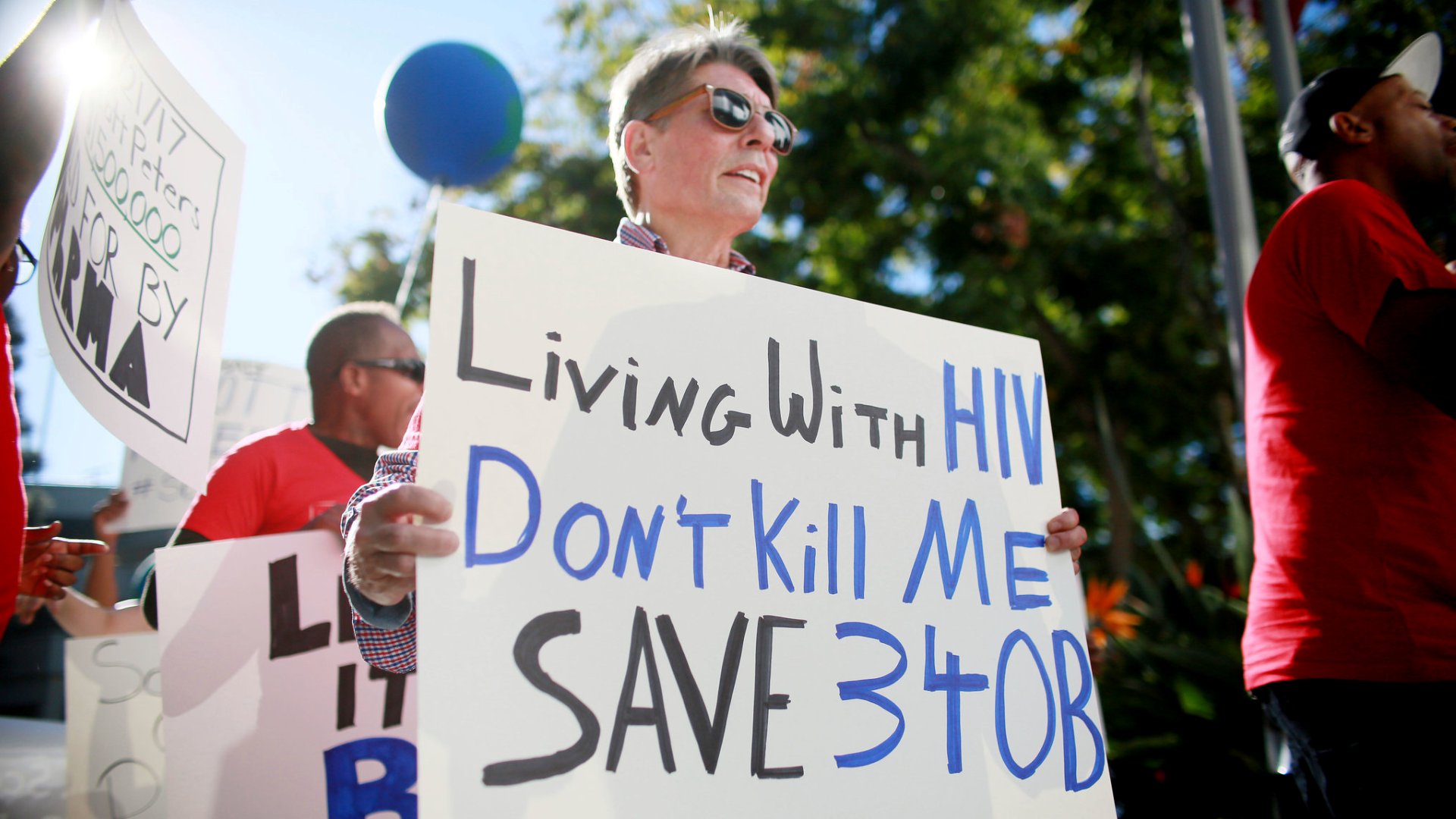Remembering AIDS: Is COVID-19 Sexually Transmitted – Around 1.1 million people are living with HIV in the United States of America (USA). Nearly one in seven of these people are unaware they have HIV. The size of the epidemic is relatively small compared to the overall population but is heavily concentrated among several key affected populations.
In 2017, 66% of annual new HIV infections (see chart) occurred among gay men and other men who have sex with men (sometimes referred to as MSM) among whom African American/black men are most affected, followed by Latino/Hispanic men.
Heterosexual African American/black women, young people and transgender women of all ethnicities are also disproportionately affected.
Although the USA is the biggest funder of the global response to HIV its ongoing HIV epidemic saw around 38,700 new infections in 2017. Stigma and discrimination continue to hamper people’s access to HIV prevention as well as testing and treatment services, which fuels a cycle of new infections.
HIV rates are higher in southern states, which are home to around 45% of all people living with HIV, and account for around half of new diagnoses annually, despite making up roughly one-third (37%) of the population.
From the beginning of the HIV epidemic until 2016, around 692,790 people died of AIDS-related illnesses.
Video: A Tribute to those who have fallen to HIV/AIDS
Is COVID-19 sexually transmitted?
Based on current evidence, coronavirus – the virus that causes COVID-19 illness – is not present in the sexual fluids of someone with the virus. This means that the virus is not passed on through the sexual fluids involved in vaginal or anal intercourse.
However, coronavirus is passed on through contact with droplets from the nose and mouth, including the saliva of an infected person, which can happen through close contact with others. This means there is a significant risk of passing on COVID-19 through kissing and physical touching if one person has the virus.
There is also evidence that the virus is present in poop (faeces), so licking around the anal areas (rimming) may also be a way the virus is passed on.
RELATED: The Spanish Flu: Literally Breathtaking
Can I have sex during the COVID-19 pandemic?
During the COVID-19 pandemic, many governments are asking people to stay indoors to limit physical contact between people and the spread of the virus. Here are some things you should know concerning sex.
Sex with symptoms
If you or your sexual partner are displaying symptoms of COVID-19 – a dry persistent cough, temperature, or difficulty breathing – you should limit all close physical contact to stop the spread of the virus. This means avoiding physical intimacy, such as kissing and cuddling, as well as anal, vaginal, or oral sex.
Non-physical contact sex
Having sex with yourself, masturbation, has no COVID-19 risk and is one of the best ways to keep enjoying sex during this pandemic. You can also explore other ways to have sex without anyone physically present, including through phone or webcam.
If you decide to go online, be aware of what you are sharing and who you are sharing it with. Remember to only do what feels right. Your partner may want to explore this new way of being sexual but you shouldn’t feel pressured to share sexual content over the phone or internet if you don’t want to.
Sex with someone you live with
If you live in the same house as a regular sexual partner and you both have no symptoms, then you can continue having sex (with consent) as normal for your relationship.
If your partner is having sex with other people who don’t live with you, then this increases your risk of getting COVID-19.
Sex with someone you don’t live with
During the pandemic, some countries are actively discouraging hooking up or having sex with people you don’t live with. This is because there is a heightened risk of picking up COVID-19 or passing it on to others, which undermines public health efforts. See below for advice on what to do if you decide to have sex.
If you are a sex worker, consider going online, sexting or use videos and chat rooms, or taking a break from your business as usual activities if you can.
High-risk groups and sex
If you have a medical condition that puts you at greater risk of getting severe COVID-19, then you should be extra careful with all aspects of your life – including your sex life. You may want to consider stopping in-person sex or limiting your sex to just one partner who lives with you and is also taking extra precautions.
Limiting the spread of COVID-19 during sex
If you have sex with someone you don’t live with there are a few things you can do to lower the risk of getting or spreading COVID-19.
- Avoid kissing or exchanging saliva with anyone outside of your household.
- Avoid sexual activities which include licking around the anus.
- Use condoms or dental dams to reduce contact with saliva or poo.
- Take a shower and wash your hands and body thoroughly with soap and water both before and after sex.
- If you use sex toys, wash these thoroughly with soap and water and do not share them.
- Consider sexual arousal techniques that don’t involve physical contact – like talking.
- Mutual masturbation while physical distancing.
- Limit your physical interactions by reducing the number of sexual partners you have overall, and/or at the same time.





